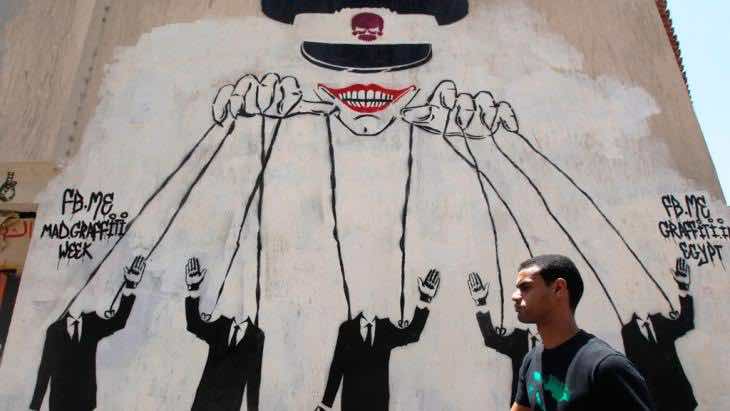The vicious circle trapping the Arab world
Planting tomato seeds will likely lead to harvesting tomatoes. To expect the seeds to yield anything else is foolish. The policies implemented by many Arab states are sowing the seeds of terrorism. Having exerted no effort in scattering the right seeds, they are beginning to face a problematic harvest – one that threatens to spread around the world.
Most Arabs are currently living in nations that are either confronted with civil wars (Iraq, Libya, Syria and Yemen) or that clearly suffer from instability as a result of political polarization (Egypt and Lebanon). In almost all Arab nations, basic adherence to human rights is lacking and democracy is completely absent. This political reality is certainly triggering an economic deterioration that affects the entire region. What should the world expect from this region that is home to more than 400 million people?

In vitually all states of the region, it is either impossible or illegal to form a political party, to found a politically driven civil society organization, or even a conscientious think tank. Citizens who have perspectives differing from those of their ruling regimes cannot express their opinions in any given media outlet, as they are controlled by their respective governments. Nowadays, many nations, such as Egypt, are regulating social media and criminalizing citizens simply for expressing views that differ from their governments’.
Even Arab citizens who disengage from politics and devote their energy to pursuing personal economic interests do not see a glimpse of socioeconomic hope or of a better future. A fair assessment of the present Middle East indicates that tomorrow will be worse than yesterday. In Egypt, many low-skilled workers earn a monthly income of $65 – which is not enough to cover daily food and commuting expenses. Starting a family and securing their future is an aspiration that many Arab youths fear they will never realize.
Risking their lives to cross the Mediterranean and to work as illegal employees has become the dream of millions of young Arabs. However, this immigration dream is a nightmare for Europe, a continent that is turns a blind eye to human rights abuses in Arab nations as long as their governments work to prevent migrants from reaching European shoresan implicit deal struck at the expense of young Arabs searching for a decent place to live and earn a living.
For better or for worse, the United States is the only country that has strong leverage in the region. Although former US presidents’ rhetorical remarks on human rights abuses and the need to pursue democracy have not led to any liberal democratic mechanism in the region, they at least softened the harsh iron-fist used by many Arab states to deal with critics. Any rhetoric by the United States implying that democracy is a prime concern prompts Arab leaders to think twice before they act repressively.
Meanwhile, US President Donald Trump’s declaration that the United States will not interfere in other nations’ domestic politics has prompted many Arab rulers to expand their policy of cruelty, which varies from issuing tailor-made decrees that help to imprison opponents, to bending the law, and simply placing opponents in prison (giving the law a break). Trump’s explicit policy of “show me your money” symbolizes the deterioration of the United States’ ethical values. Apparently, Arabs are not alone in applying these kinds of dreadful policies.
Life often offers many different paths to pursue; however, Arab governments are clearly working to block all legal and constructive channels that could help create a better future. The de-politicization that is intensively expanding in the Arab region is being overtaken by the spread of terrorism – which many Arab leaders eventually use as a justification for escalating harsh policies vis-à-vis their critics. Articulated by Arabs and endorsed by Western leaders, this vicious circle is likely to remain in place for many years to come.
